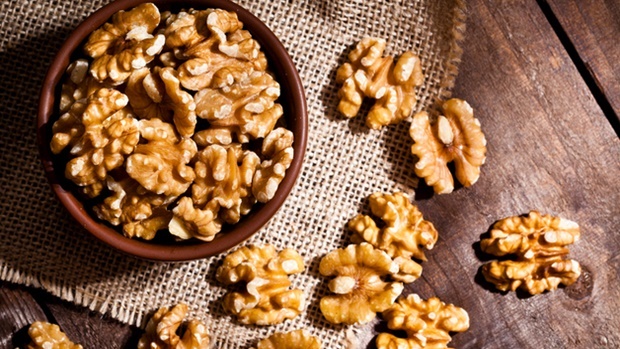Here’s what most men buy at the shops: beef, chicken, sugary desserts and alcohol. Really! This is what the research firm Hartman Group recently found. These categories are also among the top sources of kilojoules in the average man’s diet.
Beef and chicken are fine, but you know the effects of excess alcohol and sweets. Carry extra fat and you could end up in the office of a nutritionist or cardiologist.
Why not avoid this pitfall and eat the way the experts do? We checked in with six top names in health to find out what foods they consistently eat and why they eat them. This go-to shopping list will keep all your systems running at optimum efficiency.
The expert panel:
David Katz – founding director, Yale-Griffin Prevention Research Centre
Dr Stephen Kopecky – cardiologist and professor of medicine, Mayo Clinic
William Yancy – programme director, Duke Diet & Fitness Centre
Jim White – spokesman, Academy of Nutrition and Dietetics
Cara Anselmo – clinical dietitian, Memorial Sloan Kettering Cancer Centre
Alicia Anskis – clinical dietician, Massachusetts General Hospital
1. Oysters
Yes, oysters. These briny bivalves outmatch all other foods when it comes to zinc content. “Zinc plays a role in enzyme activity and protein synthesis and is key for immune health,” says Anskis. Plus, studies suggest a link between zinc deficiency and decreased testosterone. Oysters are also loaded with iron and vitamin B12, both of which support blood circulation and energy metabolism. Try to work oysters into your rotation of two to three servings of seafood a week.
Try them: If you can find fresh oysters, shuck them and slurp. Or buy canned, smoked, bacony-tasting oysters (they’re in the tuna aisle). Pop them on crackers and add goat’s cheese.
2. Something blue or purple
Dr Kopecky came up with this one, and he’s not talking about blue Smarties. He means produce like blueberries, grapes, aubergine (with the skin) and red cabbage. The pigmentation signals the presence of anthocyanins, a group of antioxidants that battle inflammation. Eat these to lower your risk of inflammation-related illnesses like heart disease, diabetes and cancer.
Try it: In a medium bowl, mash a handful of blueberries with a little salt and chopped basil; add a splash of balsamic. (You can add fresh minced chilies too.) Spoon this slightly sweet sauce on top of baked salmon or roast chicken.
3. Eggs
We’re talking whole eggs, not just whites. Yolks have compounds that keep your eyes, brain and bones healthy. Research now confirms that they won’t spike your cholesterol, says Anskis. Eggs also have the highest “biological value” of any protein source. Translation: your body can absorb more of the protein for greater muscle-building benefits.
Try them: For a no-heat lunch, try curried egg salad with greens. Mix eight chopped hard-boiled eggs with one tablespoon Greek yoghurt, half a tablespoon curry powder, some chopped parsley and salt to taste.
4. Olive oil
“Your primary fat should be olive oil,” Dr Kopecky says. Researchers credit a potent polyphenol called oleocanthal for fighting everything from Alzheimer’s to some cancers. Consider your supplier too. “I only buy extra-virgin olive oil and get it at shops that have a high turnover,” Dr Kopecky says. “If it sits for too long a time, it loses some of its benefits.”
Try it: Extra-virgin olive oil is best used for lower-temp cooking. At higher temperatures, beneficial compounds break down and the taste suffers. So use it to sauté or as a finisher for soups or salads.
5. Oats
“All whole grains are good, but oats are probably the easiest to add to your diet since they’re not hard to cook,” Anskis says. Two cups of oatmeal has 8g of fibre; that’s about half of what the average person eats daily. That’s not close to the 38g you need to drop your risk of heart disease, stroke, hypertension and diabetes, so eat fibre from produce too.
Try them: You don’t always have to go sweet with oats; its sturdy texture can also support savoury flavours. Add salmon and avocado, or mix in mushrooms and greens sautéed in garlic.
6. Beans
Two things in life are guaranteed to break your heart: high school crushes and not eating beans. In a 2014 study, people who ate two thirds of a cup a day of legumes – such as peas, beans and lentils – reduced their LDL (bad) cholesterol by 5%. Have a half-cup serving of beans at least three or four times a week. Black, white, red, kidneys, navy – your body doesn’t care.
Try them: Toss a rinsed can of chickpeas with olive oil, a little garlic powder, smoked paprika and salt. Roast at 200°C for 30 to 40 minutes, tossing halfway. It’s a crunchy, smoky snack.
7. Walnuts
All nuts contain heart-healthy good fats, but three of our experts singled out walnuts as nutritional champs. They’re packed with omega-3 fatty acids, says White, which may also strengthen your sperm. In a Biology of Reproduction study, the swimmers of men who ate about two thirds of a cup of walnuts a day showed improved motility, vitality and shape.
Try them: Mellow out their flavour by blending walnuts into a shake, dropping them into a soup, scattering a few over a salad, or crushing them to use in a breading for fish or chicken.
Fuente: www.health24.com
